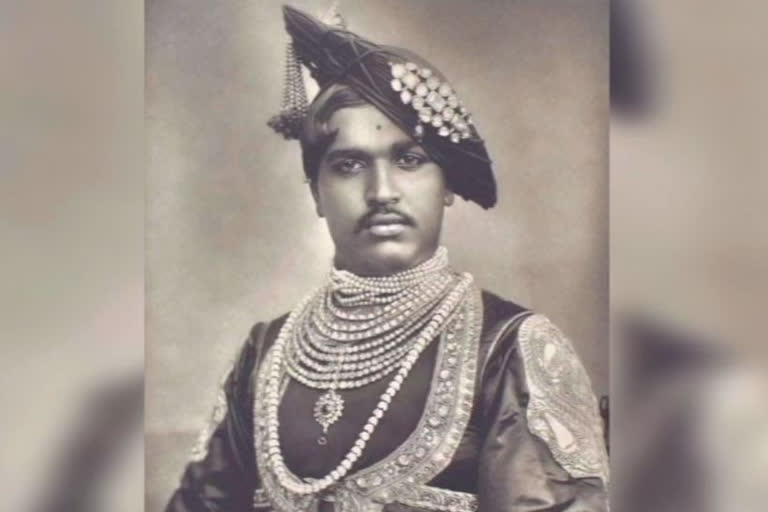Kolhapur: Chhatrapati Shahu Maharaj, a pre-independence king from Maharashtra's Kolhapur, brought in many prominent social reforms that remain imperative even today, several years after his death. His reforms, in fact, also secured a place for themselves in the Constitution of India. Known as the 'Father of Reservation', Shahu Maharaj strived for social reforms which were ahead of his times and are equally relevant even today. His contributions to the freedom struggle of India are also noteworthy, though not largely propagated.
Shahu Maharaj's role in the Indian freedom struggle was a secret affair, which he skillfully executed in order to be kept hidden from the British. He was helping the organization started by Lokmanya Tilak with a financial contribution of Rs 500 every year. He also provided financial assistance to the families of freedom fighters who participated and suffered during freedom struggle. Though not underlined, Shahu Maharaj's subtle ways of bringing in these social reforms and contributing secretly on his own also added great value to the freedom struggle. "Being the proprietor of the Karveer Sansthan, he was under the control of the Britishers like all the other organizations at the time. But despite their influence, his work has been commendable," said Sanjeev Khade, an Indian historian.
Shahu Maharaj was born on June 26, 1874, at Kasba Bawda in Kolhapur in the Ghatge family. He was later adopted into the Chhatrapati dynasty and eventually coronated as the king on April 2, 1894. After his Rajyabhishek on the same day, he came to be known as 'Chhatrapati' Shahu Maharaj. He served as the king of Kolhapur Sansthan for a total of 28 years till 1922.
He extensively worked for the eradication of untouchability, and also enacted several laws in this direction. A law under which the workers at public places like hospitals, schools would lose their jobs if they practiced untouchability was one of the chief highlights of his tenure as the king.
Before being coronated as the king, Shahu Maharaj took a thorough overview of the socio-political situation across his kingdom. One thing that he prominently noticed was the crucial role that caste and caste system played in defining the social structure. After enough contemplation over the possible solution to this problem, he realized that education and emphasizing the importance of knowledge could be the only way to improve the situation. He, therefore, enacted a law wherein he made education a compulsory and free provision for everyone.
Additionally, he also introduced the concept of reservations in education and employment for the Maratha, Kunabi and Dalit communities, and promoted inter-caste as well as inter-religion marriages, while also being actively supportive towards the Hindu-Muslim unity. Shahu Maharaj had also taken a stand about India being as much a country of Muslims as it is of the Hindus. Dr Ramesh Jadhav, a veteran historian remembers how Shahu Maharaj allowed the songs sung by Alahidi Khan - a Muslim man - in the temple of Goddess Amba Mata, showing strong support towards Hindu-Muslim Unity.
Shahu Maharaj also initiated the construction of Radhanagari Dam in 1908. Unfortunately, the work of the dam was completed several years after his death. The Radhanagari Dam is considered as the focal point of Green Revolution in Kolhapur. The credit for green revolution in the area, therefore, also goes to Shahu Maharaj.
Also read: Mani Bhavan - Mahatma Gandhi lived here, now the monument propagates his philosophy



